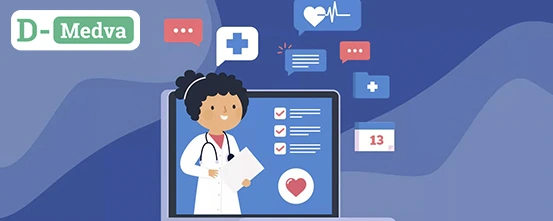Why a $1,400 Measles Shot in Texas Reminds India to Strengthen Free Immunisation
When a family in Texas was billed $1,422 for a routine MMRV vaccine, it shocked many in India, where such vaccines are provided free under the Universal Immunisation Programme schedule. The steep charge not only sparked debate in American healthcare circles but also drew attention in India, underscoring the stark contrast between the two vastly different systems. In a country like India, where the government covers essential immunisations, this story raised eyebrows and reinforced the value of our public health safety nets. This alarming price tag exposed the fragile safety net of insurance-driven healthcare in the United States. It also reignited global discussions around vaccine accessibility and affordability. India’s public immunisation system, despite its limitations, ensures essential childhood vaccines are distributed at no cost through more than 25,000 primary healthcare centres. The case serves as a reminder of why access, affordability and awareness must remain the cornerstones of any successful immunisation effort. What does this tell us about vaccine hesitancy by country? Globally, vaccine hesitancy by country varies, driven by factors such as institutional trust, misinformation and healthcare access. The Texas family’s confusion over vaccine billing reflects broader systemic trust issues that can feed public scepticism and delay vaccine uptake, even when the need is urgent and the science is clear. In India, while government programmes offer vaccines for free, urban slums, tribal regions and migrant populations often remain out of reach. Vaccine hesitancy in these areas is more often rooted in poor communication and logistical gaps than ideological opposition. Addressing hesitancy means engaging these communities with empathy, culturally aware messaging, clear information and trusted local outreach that builds trust over time. Are free vaccines being used effectively? Yes, but the system has room to improve. While MMR vaccines, which cost between ₹200 and ₹700 in private settings, are provided freely in public clinics, uptake remains inconsistent across regions and social groups. There is a noticeable gap between availability and actual utilisation, especially in low-income neighbourhoods and semi-urban zones. Public campaigns must clearly explain the value of vaccines, not just in health terms but financially. When parents understand that one free shot can prevent thousands in medical bills, compliance rises significantly. Storytelling, visual campaigns and community engagement models can bring this message home more effectively than traditional flyers or announcements. How do Mission Indradhanush guidelines help plug coverage gaps? India’s Mission Indradhanush is a focused initiative to catch up on childhood immunisation, ensuring that children who have missed routine vaccinations are protected. The program uses targeted strategies, including mobile health vans, community influencers, and school drives. By prioritising underserved populations and overcoming barriers, Mission Indradhanush is closing immunisation gaps. Success stories, such as the immunisation achievements in Madhya Pradesh and Odisha, highlight the effectiveness of this effort. With data analytics, field workers, and community trust, Mission Indradhanush shows that no child should be left behind. It’s an example of how commitment and execution can lead to universal immunisation. What role does technology play in vaccine outreach? Digital tools are reshaping vaccine delivery. In Karnataka and other Indian states, pilot programmes have tested mobile apps and SMS platforms to send vaccine reminders in local languages and guide families to nearby immunisation centres. While exact impact data varies by region, multiple studies suggest that such digital reminders can reduce missed doses by 10–20% and significantly improve parental engagement with their child’s vaccination schedules. By bridging public health with digital outreach, India can close the information gap that often leads to missed vaccines. Real-time data, geo-mapping, chatbots and multilingual alerts make the process both efficient and accessible. Tech platforms also help identify patterns in vaccine uptake, enabling health workers to deploy resources more effectively. How can private clinics support public health goals? Private providers administer over 30% of India’s vaccines. When these clinics sync with public dashboards, share best practices and issue digital vaccine certificates, they become crucial allies in healthcare delivery. Their contribution can significantly improve coverage in urban areas and among the middle-income population that often skips public services. Integrating them more deeply into national immunisation goals enhances coverage and ensures that private healthcare supports—not competes with—public efforts. Incentives, training programmes and co-branded awareness initiatives can help align their operations with national public health goals and create a unified vaccination ecosystem. Partner with D-Medva to build integrated outreach strategies that align public policy with private sector capabilities. Why do policy changes still matter? The Texas case is a warning bell. India must push for regulatory updates that make preventive vaccines part of mandatory insurance coverage. Fee transparency should be standard in both public and private facilities to eliminate confusion, suspicion and mistrust among parents. By mandating these changes, the government can eliminate cost barriers and ensure no parent is caught off guard like Anh’s family. Strong policy is the foundation of equitable care. Policy reforms should also include better coordination between ministries, streamlined funding and consistent updates to national vaccine schedules. D-Medva helps healthcare brands, NGOs, and advocacy groups build campaigns that move the needle online and on the ground. Reach out to create real change. Why the Universal Immunisation Programme Needs a 2025 Push India has built one of the largest immunisation programmes in the world, but headlines like the $1,400 vaccine bill in Texas show there’s more work to do. Public trust, informed outreach and systemic transparency are not optional; they are essential. Community-led health education and digital media can fill these remaining gaps effectively. Let this story serve as motivation to double down on smart, inclusive immunisation strategies that protect every child, regardless of postcode or income. The lesson from Texas is clear: affordability, clarity and proactive communication save more than money—they save lives. Contact D-Medva to build trust-first strategies that put your audience and their well-being at the centre.






